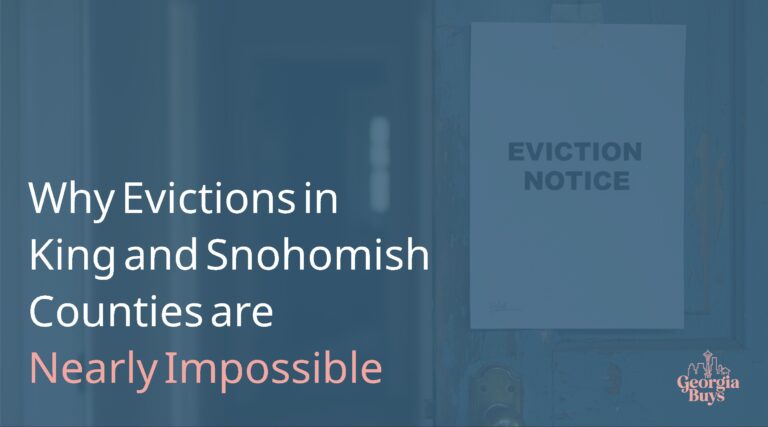
What landlords need to know about their rights and their options
If you own rental property in King or Snohomish County, you know how rewarding it can be, but also how stressful it becomes when a tenant relationship no longer works. Eviction is often the tool landlords think of, but in Washington State the process has become more complex over the years. Mistakes can cost you time, money, and even put you at legal risk.
This guide will help you understand how eviction works in Washington, what rights both landlords and tenants have, and why many owners are choosing to sell their properties instead of going through a lengthy and difficult court process.
Evictions in Washington are governed by the Residential Landlord-Tenant Act (RCW 59.18). Here are a few key points:
Because the laws are very detailed, many eviction attempts are dismissed in court simply due to technical errors.
Here is what the timeline typically looks like for a nonpayment or lease violation case:
Even in simple cases, this process often takes several weeks. If tenants defend themselves in court or request delays, it can take months.

King County
King County has added layers of tenant protection in recent years. For example, landlords in unincorporated King County must sometimes give a 30-day notice to comply or vacate for certain violations. The sheriff’s office enforces writs, but landlords are responsible for arranging movers and handling belongings once removed.
Snohomish County
Snohomish County previously required a mediation step called the Eviction Resolution Program. While that formal requirement has expired, mediation resources still exist and landlords are encouraged to use them when possible. Local courts also provide their own forms and packets to guide landlords through the process.
Evictions are not only complicated, they are unforgiving when it comes to errors. Here are some of the most common mistakes:
Any of these can delay or completely derail the process.
Eviction is stressful for landlords and tenants alike. For many owners, the better option is to sell the property instead of battling it out in court.
At Georgia Buys, we help landlords exit difficult situations without violating tenant rights. Here is how:
This approach allows landlords to move forward without the costs and risks of eviction, while tenants keep their rights intact.
Ready to stop worrying about tenant issues? Request a no-obligation cash offer today and see how easy selling can be.
The eviction process in Washington has become increasingly difficult for landlords. Between detailed notice rules, tenant protections, and strict court procedures, it is a process that requires caution and patience.
If you are a landlord in King or Snohomish County who feels stuck with a tenant that no longer suits your situation, remember you have options. You can continue down the legal path, or you can consider selling to a local company like Georgia Buys. We provide a respectful, straightforward way to close this chapter and move on without conflict.
Thinking about selling your rental property? Contact us today and we will help you explore the best path forward.
Thinking about selling your rental property in King or Snohomish County? Contact us today for a stress-free consultation.